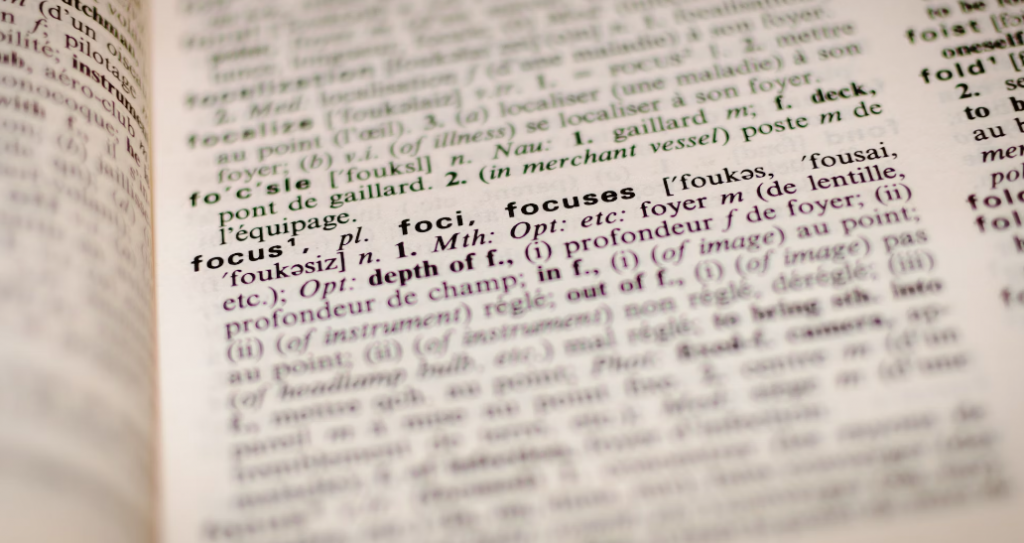New Words Like “Rizz” and “Simp” Are Now Part of the Dictionary

© Emmanuel Ikwuegbu / Unsplash
Hey, what’s up, my rizzler?” What? You can confidently say that now! At least, Merriam-Webster says so. Yes, you read that right! Among a slew of other new words, “rizz” has officially made its debut as one of the new additions to the dictionary, joining the ranks of words that reflect the dynamic and evolving nature of language. So, feel free to sprinkle some “zhuzh” into your chatter to make it “bussin’.” It’s officially recognized!
What Is Merriam-Webster?
The Merriam-Webster Dictionary is a widely used American English dictionary. It is one of the most respected dictionaries in the English language. The dictionary is published by Merriam-Webster, Incorporated, a subsidiary of Encyclopædia Britannica, Inc. It traces its roots back to the early 19th century when Noah Webster published his first dictionary in 1828.
The Merriam-Webster Dictionary provides definitions, pronunciations, and usage examples for many English words. It is also a valuable resource for students, writers, scholars, and anyone seeking to understand or use the English language effectively. In addition to the traditional print version, Merriam-Webster also offers online versions and mobile apps, making it easily accessible to a wider audience.
What New Words Were Added to the Dictionary?
As of 2023, Merriam-Webster, the oldest dictionary publisher in the United States, has officially added 690 new words to its lexicon. Notable additions include nouns like “rizz,” adjectives like “goated” and “bussin,” and verbs like “simp.” This update reflects the evolving nature of language and incorporates contemporary expressions into the dictionary.

In addition to incorporating slang like “rizz”, the latest Merriam-Webster update includes words and phrases from the digital realm. Such as “generative AI” and “large language model” from the AI space, and terms like “cutscene,” “nerf,” and “rage quit” from the gaming world. The additions span diverse topics, ranging from “culture and society” with terms like “thirst trap” and “‘grammable” to business-related terms like “meme stock” and “girlboss.” This reflects the dictionary’s effort to stay current and inclusive of language used in various contexts.
What Do These New Words Mean?
As mentioned earlier, Merriam-Webster’s recent update includes 690 new words. Some notable additions include:
- “Rizz”: A term similar to “chat” or “patter,” specifically with a potential romantic partner, defined as ‘romantic charm and appeal.’ “CHARISMA”.
- “Zhuzh”: Defined as a small improvement, adjustment, or addition that completes the overall look, taste, etc. of something. As a verb, it means to improve in flavor or appearance by way of a small improvement, adjustment, or addition. Often used with up.
- “Doggo”: Slang noun for a dog.
- “Padawan”: Informal noun referring to a young person, especially when considered naive or inexperienced.
- “Bingo card”: Slang noun, a list of possible, expected, or likely scenarios. It is often used in the phrase “on one’s bingo card.”
- “Simp”: Informal verb, meaning to show excessive devotion to or longing for someone or something.
- “Goated”: Slang adjective, denoting something considered to be the greatest of all time.
- “Bussin‘”: African American English slang adjective meaning extremely good, excellent, especially in terms of being delicious or tasty.
- “Cromulent”: Informal and humorous adjective, signifying something acceptable or satisfactory.
- “Mid”: Informal adjective, meaning neither very good nor very bad, so-so or meh.
- “NGL”: Informal abbreviation for “not gonna lie.”
- “TFW”: Informal abbreviation for “that feeling when.” It is often used on social media or in text messages to introduce relatable scenarios or evoke specific feelings.
- “TTYL”: Informal abbreviation for “talk to you later.”
Why Were These Words Added to the Dictionary?
Merriam-Webster announced the new additions to their dictionary in a blog post. They highlighted that signs of a healthy language include the creation of words, borrowing from other languages, and assigning new meanings to existing words. They expressed delight in declaring English as very healthy based on their recent research. To explore the full list of additions, readers are encouraged to visit the Merriam-Webster blog.

In September of the previous year, Merriam-Webster expanded its dictionary with 370 new words and terms, which included additions like “sus,” “baller,” “oat milk,” and “booster dose.” The process of qualifying a new word for inclusion involves observing its frequent usage in reputable publications like The New York Times or The Atlantic. Merriam-Webster emphasizes the need for the term to appear consistently in carefully edited prose over time, rather than just in memes or on social media.
What do you think of these new words added to the dictionary? Did you know them beforehand, or are they complete strangers to you?
You might also want to read: Washing Machine Guide 101: Laundry Symbols Meaning



